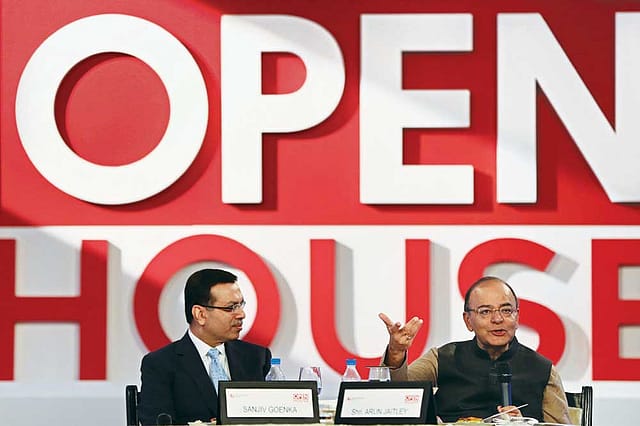Openomics 2017: Editor’s Note

BUDGET IS a political statement on the economy, and it invariably invites such time-tested adjectives as historic, bold, progressive, populist, cautious, or socialist. With the advent of Narendra Modi, dramatic is the word we prefer to add to our expectations. After all, his image is larger than his office, and placidness is not what defines his politics— or his past. He campaigned, as Mario Cuomo would have said, in poetry—stentorian in delivery and savage in effect. Governance Modi-style may not be purely prosaic, but it is not an extension of what we have seen on the stump: it's not theatre. He breaks the monotony with a big bang intervention—well, as big as demonetisation. On the eve of the Union Budget 2017, it was pretty natural for the commentariat to expect a continuation of the dramatic. With the UP elections, aptly seen as a midterm referendum on the Prime Minister, it was as if nobody was prepared to be let down by a matter-of-fact budget. Going by conventional wisdom, the time was ideal for a burst of populism. Modi and his Finance Minister, Arun Jaitley, had other things in mind. They gave us a budget that sets the foundation for value-based governance. It's a budget that incentivises the moral content of the world's largest democracy.
It is not drama but dharma that defines Jaitley's third budget. Apart from showing a heightened sense of fiscal responsibility, he has once again stressed that India in its economic evolution has not reached a stage where the state can afford to withdraw from our lives, certainly from the lives of the poor. It is not socialism of the 80s vintage, but the Prime Minister's neo-Gandhian idea of an unequal India that drives his rural agenda as seen in this budget. Another remarkable budgetary initiative is on taxation: make India, usually cited as one of the most taxed countries with a labyrinthine structure, a tax-compliant society. Here again, the Finance Minister has made it easier for the lower-income group. It may not be as drastic as some people would like it to be, but the proposal on political funding, with the emphasis on transparency and accountability, is a redeeming measure in a political system without moral content. It fits into the larger framework of Modi's vision of an India with a cleaner conscience. In Jaitley's Budget, the pursuit of economic fulfilment is a participatory enterprise.
AIming High
20 Feb 2026 - Vol 04 | Issue 59
India joins the Artificial Intelligence revolution with gusto
Our event on the day after the Budget presentation in Parliament, Open House with Arun Jaitley, provided the perfect forum for the highest stakeholders in the Indian economy to have a conversation with Jaitley, one of our most eloquent politicians. In a breakfast discussion moderated by Sanjiv Goenka, chairman of RP-Sanjiv Goenka Group, the parent company of Open, Jaitley was at his persuasive best as defender and advocate of an economically as well as morally resurgent India, living up to our description of him on the cover this week: 'Modi's Moderniser'. At one point, he said in response to a question that there is a limit to what a government can do and the private sector too should join the mission of nation building. True, though it must be said that the Indian growth story is a tribute to the entrepreneurial spirit of Indian industry in spite of a regulation-happy government. Still, there is a larger truth in what Jaitley has said: even as we deride government, we as a people want more of it. What we at Open want is an informed argument on the ideas and attitudes of India. The Open House marks a new beginning for the magazine: we are taking the conversation beyond the pages.
